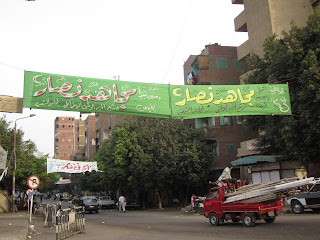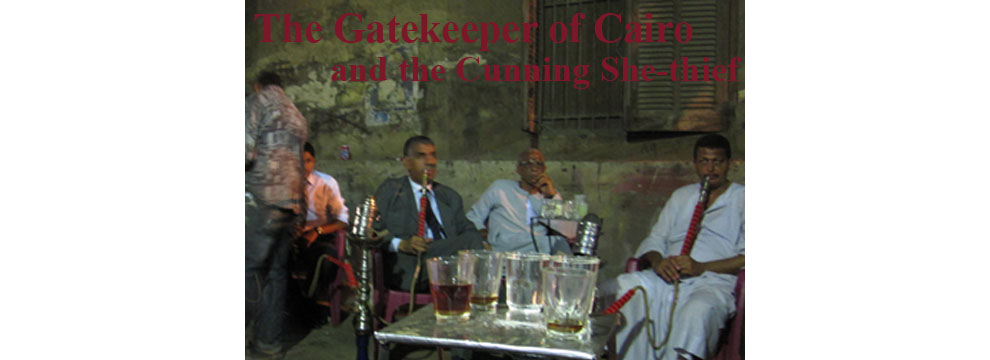 sign supporting Mohammed Beltagy (MB candidate) in Shubra
sign supporting Mohammed Beltagy (MB candidate) in Shubra sign supporting Megahed Nasar (NDP candidate) in Shubra
sign supporting Megahed Nasar (NDP candidate) in Shubra car with posters supporting Hisham Mustafa Khalil (NDP candidate) outside of a polling station in Zamalek
car with posters supporting Hisham Mustafa Khalil (NDP candidate) outside of a polling station in ZamalekAbove are a few photos I took in the Downtown/Zamalek/Shubra areas on election day. Most polling stations seemed empty and their entrances were heavily guarded by police. I heard from one CASA professor that he was turned away at the polling station. There were also rumors of the regime setting up "polling stations" on the government employee buses so that government employees could "cast their votes" on buses.
There were reports of fairly vicious electoral competition between Mohammed Beltagy and Megahed Nasar in Shubra on election day, but even those polling stations seemed dead by the afternoon.




